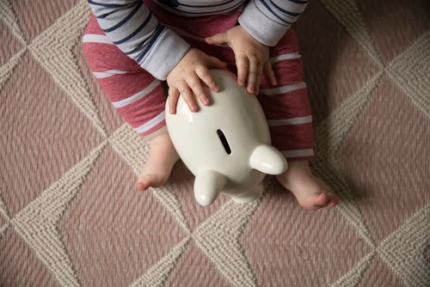Cost of raising a child in Israel
For any family in Israel, raising a child involves a significant financial outlay. The high standard of living and the cost of raising children place Israel among the leaders in OECD countries in terms of proportion of the family budget spent on the younger generation. When planning a budget, parents have to consider many factors: the cost or housing, childcare, education, health care and government benefits. It is the costs that often determine a familyís decision about the number of children and standard of living.
an Israeli citizenship specialist
Overview of parenting expenses in Israel
The largest item of family expenditure in Israel is undoubtedly housing. This is most evident in large cities such as Tel Aviv, where the rent for a two-bedroom apartment in 2025 exceeds NIS 6,500 ($1,820) per monthóa sum that claims a major share of a familyís monthly budget. In smaller cities and on the periphery, rents range from NIS 2,800 to 4,000 ($780ñ$1,120) per month, but family incomes there also tend to be significantly lower, which limits purchasing power and the ability to cover additional expenses. Meanwhile, the cost of food continues to be a serious factor: grocery prices in Israel remain 15 to 25 percent above the OECD average.
These two categoriesóhousing and foodódefine the foundation of most family budgets, and, while other costs such as utilities, health insurance, and municipal taxes are substantial, they generally pale in comparison to the combined outlays on accommodation and staple goods. Because these expenses are largely unavoidable, they dominate budget planning for all types of households, whether located in Tel Aviv or in small towns, and directly shape decisions about childbearing, work, and lifestyle. As a result, understanding the structure and trends of these costs is crucial for every parent or prospective parent in Israel.
Childcare costs
This situation creates a considerable financial burden, particularly for young families in urban areas where fees can account for a sizable portion of disposable income. Furthermore, the governmentís evolving support mechanismsóincluding direct subsidies, tax credits, and ongoing sector reformsóplay a critical role in making childcare more accessible. Nevertheless, gaps in availability persist, and parents must carefully weigh their options based on both financial and practical considerations, seeking a balance between affordability, quality, and proximity to home or work.
Preschool and childcare under the age of 3
For parents of young children, raising a child is the costliest: there is considerable competition for a place in a government-subsidised kindergarten or nursery school (from 1,000 to 2,500 shekels, $280-$700 per month). As a rule, priority is given to large families and low-income families. Only one-third of children under three years of age attend such institutions, while the rest have to go to private kindergartens, where the cost is much higher.
Education costs over 3 years
From the age of three, the state provides free pre-school education, but the system of after-school care is popular (from 650 to 900 shekels, $182-252 per month), and parents have to pay for school lunches and developmental activities additionally. Alternative or public schoolsí cost from 10,000 to 40,000 shekels, $2,800-$11,200 per year. In high school many have to resort to tutoring services, this can amount from 2,000 to 6,000 shekels ($560-$1,680 per month), especially before final exams.
Health care
The Israeli health care system is available to everyone, but additional costs ñ dentistry, ophthalmology, drugs, tests ñ fall on the shoulders of the family. Many people purchase additional insurance (from 140 to 400 shekels, $34-$112 per month) to speed up the receipt of services. The average additional cost for one childís medical needs is from 2,200 to 3,000 shekels per year ($616-$840).
Clothing, school supplies and activities
With the beginning of the school year, expenses for uniforms, books, backpacks and stationery increase and cost from 4,500 to 7,200 shekels per year per child ($1,260-$2,016). Different activities cost 200-700 shekels per month per one child ($56-$196), while special courses, music or sports classes can cost more than 10,000 shekels per year ($2,800).
Transport
For schoolchildren and students, public transport is relatively affordable ñ a concessionary pass costs 110-220 shekels per month ($31-62). Many families have a second car, which adds another 1,000-5,000 shekels ($280-420) monthly for fuel, insurance and maintenance.
Government support and benefits
Social support and various benefit programs in Israel play a crucial role in helping families manage their budgets. The government offers several types of financial assistance aimed at easing the cost of raising children for parents across the country.
Child allowances
Child allowances are paid automatically monthly through Bituah Leumi:
- 1 child ≈ 169 shekels ($47);
- 2-4 children ≈ 214 shekels ($60);
- 5 and more children ≈ 169 shekels ($47).
Additional payments are available for low-income families, families with many children or families raising children with disabilities).
Savings programs & tax benefits
From birth, each child is given a savings account to which the state transfers 57 shekels ($16) per month; parents may double the contribution. By adulthood, the amount of 24,000-34,000 shekels ($6,720-49,520) is accumulated. Parents of toddlers under the age of three receive tax deduction ñ 940 shekels per month ($263) for each child if both parents are employed full-time. Kindergarten subsidies depend on income and region: up to 1,700 shekels per month ($476) in poor towns, 200-300 shekels per month ($56-$84) in the center. One of the core pillars of long-term family support in Israel is the child savings program, initiated in 2017 and now recognized as a global best practice. Every child in Israel, starting from birth, is automatically enrolled in a special savings account managed by Bituach Leumi (the National Insurance Institute). The accumulated sum is invested in various financial instrumentsóusually conservative pension funds or bank savings accountsóensuring both security and a modest yield.
This tax credit is automatically deducted from salary taxes, leading to noticeable monthly savings on net household income. Furthermore, there are elevated deductions for single parents, parents of children with disabilities, and families in disadvantaged areas. Certain childcare expenses are deductible (up to prescribed limits), especially in cases where both parents contribute to the workforce. Combined, these mechanisms not only help families manage immediate outlays, but also incentivize long-term financial planning. The state continues to adjust the thresholds and eligibility each year, responding to inflation and shifting demographic needs. Families are strongly encouraged to regularly review their eligibility for all programs, as these can dynamically change with household income, family size, and place of residence.
Cost variations by region
Regional cost differences across Israel significantly influence family expenses and financial decisions. Variations in housing, childcare, and living costs between urban centers and outlying areas shape how families budget and plan for raising children in different parts of the country. See the example in the table 1.
Table 1. Regional and demographic differences
| Region | Private kindergarten (shekels/month) | Rent (shekels/month) | Family income (shekels/month) |
|---|---|---|---|
| Tel Aviv | 4,500 | 6,500 | 17,500 |
| Jerusalem | 3,200 | 5,200 | 14,000 |
| Haifa | 2,800 | 4,400 | 13,100 |
| North / South | 2,000 | 2,800 | 10,400 |
Large familied ñ ultra-Orthodox and Arab ñ have lower expenditures per child, but the overall budget burden is higher and incomes are lower than the national average.
Impact on family budget
The financial impact of raising a child in Israel is substantial, affecting household spending and long-term security. From monthly expenses to larger investments, child-related costs constitute a major part of the family budget, influencing lifestyle choices and economic stability. In recent years, family budgets have come under pressure due to inflation, especially rising prices for housing, food and utilities. With a minimum wage of 6,800 shekels per month ($1,900), rent in the center of Israel ìeats upî a substantial part of income. Often families postpone the appearance of the second child until the first child enters a free kindergarten or actively use the help of grandparents. Besides, more than 13% of children need additional therapeutic services (speech and behavioral therapist, rehabilitation). One session cost 250-1,1200 shekels ($70-$336). Organising childrenís camp during the holiday costs 2,500-6,000 shekels ($700-$1,680) per child per season. Many parents reduce their working hours to care for their children, which affects the total family income. See the example in the table 2.
Table 2. Example of a family budget (Tel Aviv, 2025)
| Expenditure item | Monthly (shekels) | Year (shekels) | Monthly ($) | Year ($) |
|---|---|---|---|---|
| Housing / utilities | 7,400 | 88,800 | 2,072 | 24,864 |
| Kindergarten (private) | 5,300 | 63,600 | 1,484 | 17,808 |
| Groceries | 3,600 | 43,200 | 1,008 | 12,096 |
| Health | 300 | 3,600 | 84 | 1,008 |
| School / Clothing | 550 | 6,600 | 154 | 1,848 |
| Mugs | 400 | 4,800 | 112 | 1,344 |
| Transport | 700 | 8,400 | 196 | 2,352 |
| Total | 17,950 | 215,400 | 4,930 | 61,320 |
Even with two working parents with a stable income, half of the budget is spent on mandatory expenses.
According to the OECD reports, parents in Israel spend 14-27 percent of their income on their children, which is considerably more than in developed European countries. In Scandinavian countries, a large share of the costs is covered by the state. Implementation of government plans for universal free pre-school education could significantly reduce the burden on families.
So, the real cost of raising a child in Israel is made of high housing costs, limited availability of public kindergartens, large education and health care costs, and marked regional differences. Allowances and subsidies partially offset these costs, but careful planning, family support, and a prudent approach to budgeting are still required. Significant reforms and expansion of public services are expected in the coming years, but the success of most families comes from strategy, calculation and government support.
FAQ
Apply for nurseries and day nurseries early so you donít miss out on a place. Early booking of nursery places, keeping a budget, collective purchases, checking benefits every year.
Yes, but income levels and availability of services are often lower.
Costs are supposed to be reduced due to free pre-school education and expansion of subsidies.
Private kindergarten for the kids, as well as general expenses for food, clothing and leisure activities.
an Israeli citizenship specialist

